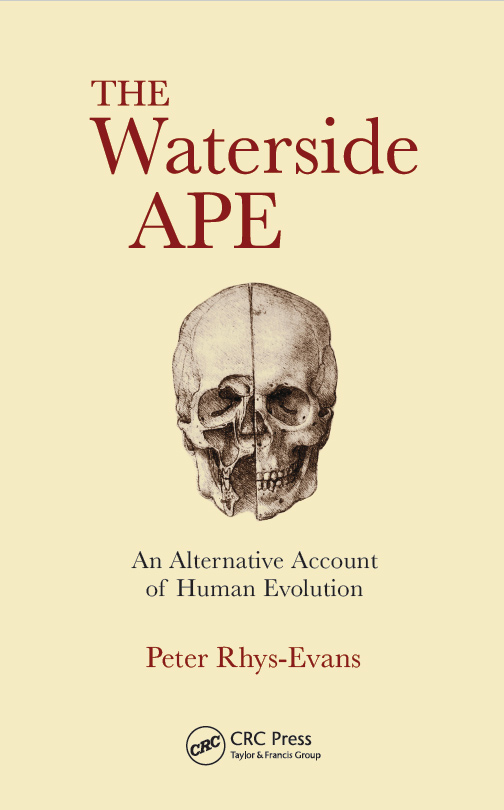- Home
- News & Events
- News
- The Waterside Ape - an alternative account of human evolution

New book available by Mr Peter Rhys Evans
03 June 2019
Have you ever wondered why humans have such an affinity for water and the sea, unlike any other primate? Why some people have dark skin and others have paler skin? Why we lost our fur and are the only Naked Ape? Why, out of over 4,000 land mammals, we are the only ones to walk on two legs?
Genetic evidence has shown that we split from our ape cousins, the gorilla and chimpanzee, around 6-7 million years ago. This was at a time when global temperature fell and the forest habitat where they lived in East Africa became decimated and replaced by grassland. New sources of food had to be found for survival. For the past 150 years, since the time of Darwin, a savannah theory of human evolution has been assumed and accepted without much scientific scrutiny or evidence, other than fossils. This theory suggests that our human ape ancestors simply came down from the trees onto the savannah where they stood upright because they could see further over the grass and became hunter-gatherers. Until recently, no other alternative evolutionary scenario has been considered.
A new book 'The Waterside Ape: An Alternative Account of Human Evolution' is a culmination of research over the past 30 years into a controversial new theory of human evolution, as featured in Sir David Attenborough’s recent BBC Radio 4 series, The Waterside Ape. The book presents new scientific evidence which provides a logical and credible explanation of how humans evolved from our primate ancestors. It offers evidence to explain our distinctive human characteristics such as walking on two legs, hairlessness, different coloured skin, subcutaneous fat, large brains, a marine-type kidney, a unique heat regulation system and speech. None of these features are seen in any other land-based mammal, but many of them are commonly present in aquatic and semi-aquatic mammals.
The new scientific evidence presented in 'The Waterside Ape' suggests that humans may well have initially evolved from our primate ancestors, not as terrestrial mammals, as is generally believed, but as semi-aquatic mammals.
About the Author
Peter Rhys Evans is an ENT surgeon working in London. He was a Senior Lecturer at the University of Birmingham and the Institute of Cancer Research. He was also the Chief of the Department of ENT/Head and Neck Surgery at the Royal Marsden Hospital. He has authored or co-authored over 200 scientific publications including five books. His award winning textbook Principles and Practice of Head and Neck Surgery and Oncology , 2nd edition, was published in 2009. He served as a Sub-Editor for the Journal of Laryngology and Otology for nearly a decade.
There is a 20% discount when ordered direct from the publishers, CRC Press. orders@crcpress.com
View other News Articles